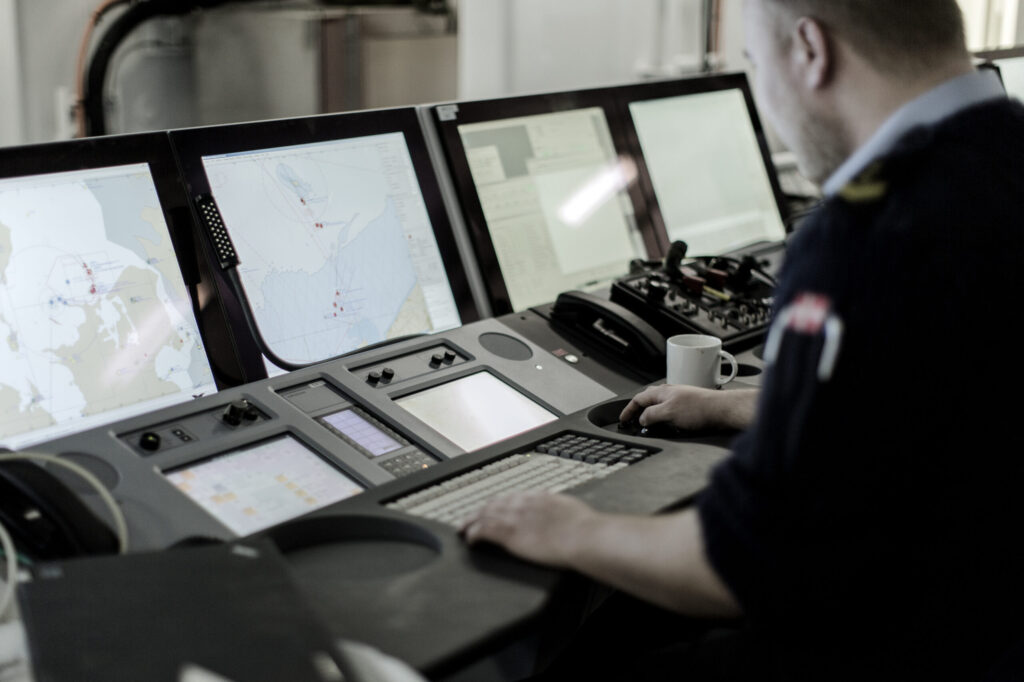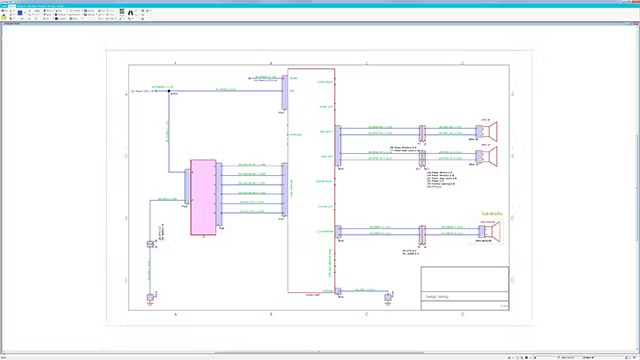Capital Essentials - Case Study
A look at how Terma accelerates wire harness design with Siemens Capital Essentials
The design of wire harnesses through traditional methods is largely manual and prone to errors. These outdated approaches are no longer viable for modern defense and aerospace electrical systems, which are highly complex. Designing such systems necessitates extensive collaboration across numerous teams, partners, and geographies. Additionally, multiple variables and tradeoffs must be taken into account throughout the design process.
TEL: +44 (0)845 644 0914


By Nuri Zugaid
EMEA Capital Portfolio Development Executive
Siemens Digital Industries Software
Traditional methods of designing wire harnesses are mostly manual and error-prone – and they no longer work for today’s highly complex defense and aerospace electrical systems. Not only does designing these systems require intense collaboration across multiple teams, partners and geographies, but numerous variables and tradeoffs must be considered throughout the design process – including how to streamline maintenance, optimize weight and space, ensure durability, while meeting rigorous compliance standards.
To make matters worse, disconnected tools and systems make efficient data-sharing nearly impossible. Data may exist in multiple spreadsheets and applications – from Visio to PowerPoint and AutoCAD software. Time-consuming reviews are required to ensure quality and safety, delaying project completion and time to market.
One global organization that has found the secret to navigating these pressing challenges is Terma, a developer and manufacturer of mission-critical systems for aerospace and defense applications – radar, command and control, electronic warfare and self-protection systems for military aircraft. The company also provides surveillance and security solutions for border surveillance, maritime domain awareness, and critical infrastructure protection.
The Problem at Hand – Eliminating Manual Processes
Terma needed a way to automate its mostly manual design process using a data-driven, model-based approach that would eliminate mundane, time-consuming tasks such as manual reviews and documentation. They were also looking to leverage a digital thread to enhance collaboration and eliminate the need to manually transfer data between engineering teams involved with a project. Of course, maintaining quality, performance and safety were key requirements.
Terma deployed Siemens Capital Essentials, a suite of wiring and harness design software tools. Capital Essentials meets the demanding requirements of industries such as aerospace, defense and aviation.
Capital Essentials: A Better Way to Design Wire Harnesses
Here are some of the key capabilities of Capital Essentials that are helping Terma replace manual processes with data-driven, model-based design automation:
- A centralized parts library that acts as a repository for components needed for both the wiring and harness design.
- Auto-generation of production-ready drawings, BOMs and manufacturing reports, for massive time savings.
- Simulations for continuity, voltage drop, current directions and calculations are available within Capital Essentials and could be adopted by Terma for further ROI.
- The ability to synchronize connectivity between the wire and harness design leveraging a digital thread.
- Numerous validation features for rapid, right-first-time, error-free electrical and harness design.
- The ability to integrate with 3D CAD systems for seamless data sharing.
- Full data compatibility with companies using Siemens Capital, making it ideal for partners, suppliers, and subcontractors of OEMs across industries.
Importantly, Terma has been able to eliminate lengthy, time-consuming reviews and instead implement “selective reviews.” This is because Capital Essentials’ auto-generation capabilities make manual reviews unnecessary. Plus, generating reports such as the BOM and wire manufacturing lists is as easy as a few clicks, since all of the data lives in the same environment.
With these features and more, Capital Essentials eliminates errors and redundancy, helping Terma deliver innovative products to market that meet all of the strict regulations of the industries they serve –faster.
Learn the Power of Automation for Wire Harness Design
Read more about Terma’s implementation of Capital Essentials and how it’s helping them accelerate right-the-first-time electrical wire harness design in our latest whitepaper, “The Power of Automation: Achieving Rapid Wire Harness Design with Siemens Capital Essentials.” Download it here.
The Siemens Capital Essentials suite is optimized for rapid deployment and minimal IT footprint. With easy installation, it helps users achieve dramatic returns on investment using powerful, yet intuitive, functionality. Customers can get rapid, right-first-time, error-free electrical and harness design with numerous validation features, including simulation for continuity, voltage drop and current directions and calculations. Users can also automate harness engineering and create production-ready drawings, bill of materials (BOMs), numerical control (NC) files and manufacturing reports.
Learn More

ON DEMAND WEBINAR
Accelerating Electrical Harness Design
Siemens’ digital solutions offer advanced options for the harness industry to capitalize on digitalization. Our effective strategies reduce costs and increase efficiency and productivity. Choose Siemens’ digital solution for a professional operational transformation. Join the smart revolution now!

WHITE PAPER
The power of automation and simulation for wire harness design
How can you manufacture increasingly complex wire harnesses in an efficient and accurate manner? Since harness design and manufacturing require seamless collaboration between various teams in various locations, continuing with traditional processes and solutions won’t cut it.

VIDEO
Wiring and harness design with Capital Essentials
Watch this video to see how Capital essentials satisfies the demanding requirements of companies where ease-of-use and value are as important as functionality.

